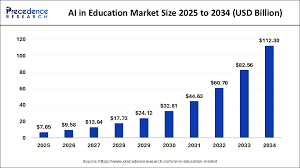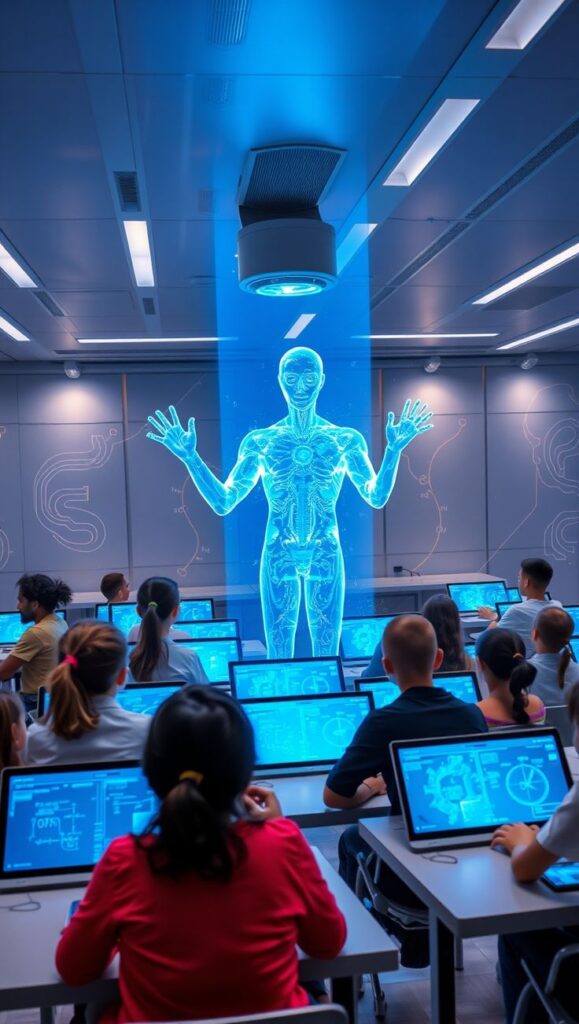Transforming Learning and Teaching

Introduction
Artificial Intelligence (AI) has emerged as a transformative force across multiple industries, and education is no exception. With its ability to personalize learning, automate administrative tasks, and provide real-time feedback, AI is reshaping how students and educators engage with knowledge. This blog explores the applications, benefits, and challenges of AI in education, supported by recent academic studies from the United States, Europe, and the UK.
Benefits of AI in Education

1. Personalized Learning: AI-driven adaptive systems tailor educational content to individual learning styles, improving student engagement and retention (Chen et al., 2020).
2. Intelligent Tutoring Systems: AI chatbots and virtual tutors provide students with 24/7 support, helping them understand difficult concepts outside of class hours (Luckin et al., 2022).
3. Automation of Administrative Tasks: Tools powered by AI reduce teacher workload by automating grading and attendance tracking (Holmes et al., 2021).
4. Enhanced Accessibility: AI assists students with disabilities through speech recognition, text-to-speech, and real-time translation (Roll & Wylie, 2020).
Challenges and Ethical Considerations
Despite its benefits, AI in education also raises ethical and practical challenges:
– Data Privacy: Student data collection raises concerns about security and misuse (Holmes et al., 2021).
– Algorithmic Bias: AI systems may reinforce social inequalities if not carefully designed (Williamson & Eynon, 2020).
– Overreliance on Technology: Excessive dependence on AI tools may reduce critical thinking and human interaction (Luckin et al., 2022).
Case Studies and Applications
AI has been successfully integrated into various educational platforms:
– Carnegie Learning in the US uses AI-powered math tutoring systems that adapt in real time.
– Century Tech in the UK offers adaptive learning platforms used in schools to personalize student learning.
– Duolingo leverages AI algorithms to personalize language learning experiences globally.
Conclusion
Artificial Intelligence holds immense potential in transforming education by making learning more personalized, efficient, and accessible. However, balancing innovation with ethical considerations is crucial. As schools and universities continue to adopt AI, careful implementation will determine whether AI truly enhances education or deepens existing inequalities.
References
- Chen, X., Xie, H., & Hwang, G. J. (2020). A multi-perspective study on artificial intelligence in education: Trends and applications. *Computers and Education, 151*, 103-116.
- Luckin, R., Holmes, W., Griffiths, M., & Forcier, L. B. (2022). Artificial Intelligence and the Future of Learning. OECD Publishing.
- Holmes, W., Bialik, M., & Fadel, C. (2021). Artificial Intelligence in Education: Promises and Implications for Teaching and Learning. Center for Curriculum Redesign.
- Roll, I., & Wylie, R. (2020). Evolution and revolution in artificial intelligence in education. *International Journal of Artificial Intelligence in Education, 30*(1), 2-35.
- Williamson, B., & Eynon, R. (2020). Historical threads, missing links, and future directions in AI in education. *Learning, Media and Technology, 45*(3), 223-235.
